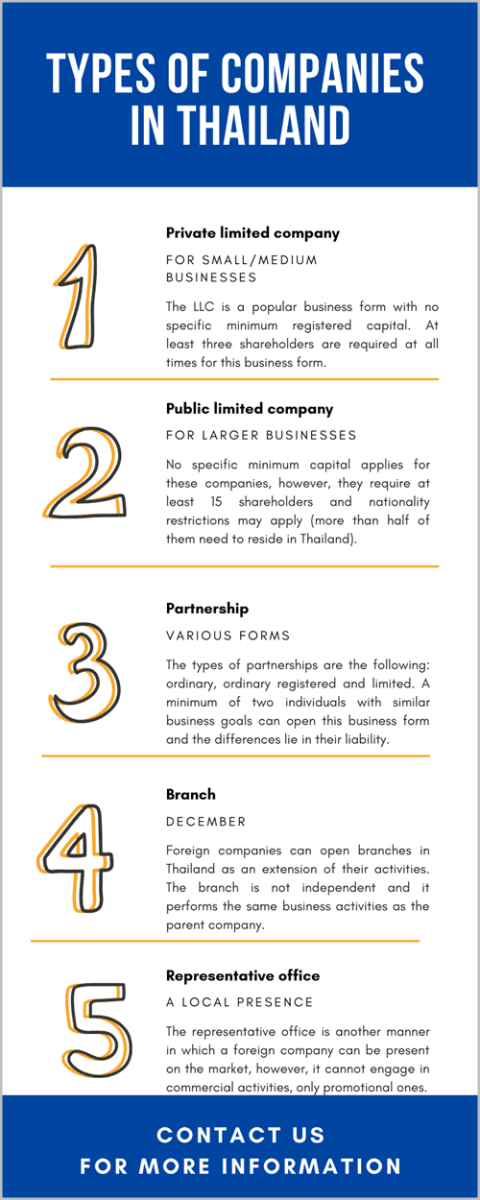Foreigners who are taking into consideration to establish their business presence on the Thai market can choose to incorporate the company under several legal entities available for foreign nationals. It is advisable to receive the assistance of the local specialists for this procedure, as the local legislation provides several stipulations related to the business activities which can be carried out by foreign businessmen. Our team of company registration specialists in Thailand can provide consultations on any aspect of the registration process.
Table of Contents
Legal entities available in Thailand
Investors are interested in setting up a company in Thailand are allowed to establish the business under the following legal entities:
• limited company- established by at least three shareholders;
• partnership – managed by minimum two persons;
• joint venture – formed by a group of natural persons and/or legal entities.
Limited companies in Thailand can be set up as a private or public company; the private company is regulated by the stipulations of the Civil and Commercial Code, while the second one falls under the rules of the Public Company Act. The shareholders registering a limited company benefit of limited liability for the business’ debts, but it is important to know that the directors may have unlimited liability if the statutory documents prescribe such a provision. The local legislation stipulates several limitations imposed on foreign investors; for example, foreigners setting up a business are not allowed to fully own a company here, as they can have only 49% of the shares of the company; our Thai company formation agents can provide more details on this law.

Company registration in Thailand
After the investor has decided upon the legal entity under which he or she will carry out the business activities, the registration process can begin. It is important to know that the Thai incorporation process starts by proposing a company name at the Department of Business Development, working under the Ministry of Commerce. If investors choose to, they can set up the company using a virtual office in Thailand.
The entrepreneur will have to establish a corporate bank account and to receive a company seal. Further on, the business will have to receive approval on the statutory documents from the Partnerships and Companies Registration Office. The process is rather complicated and therefore, the assistance of a local specialist is indicated for this step. The business will also have to be registered with the relevant social contributions and tax authorities, including for the payment of the Value Added Tax (VAT).
Trademark registration in Thailand can be a good option for limited liability companies.
We invite you to watch a comprehensive video about the available types of companies in Thailand you can choose from:
If you need further information on the legal entities available in Thailand, please contact our team of Thai company formation representatives for consultations. In case you are interested in company formation services in other countries, we have a wide network of affiliates who can help you open an offshore company in Belize, incorporate a company in Slovakia or in any other jurisdiction, such as China, Kazakhstan or Bahrain, if you are interested in.


